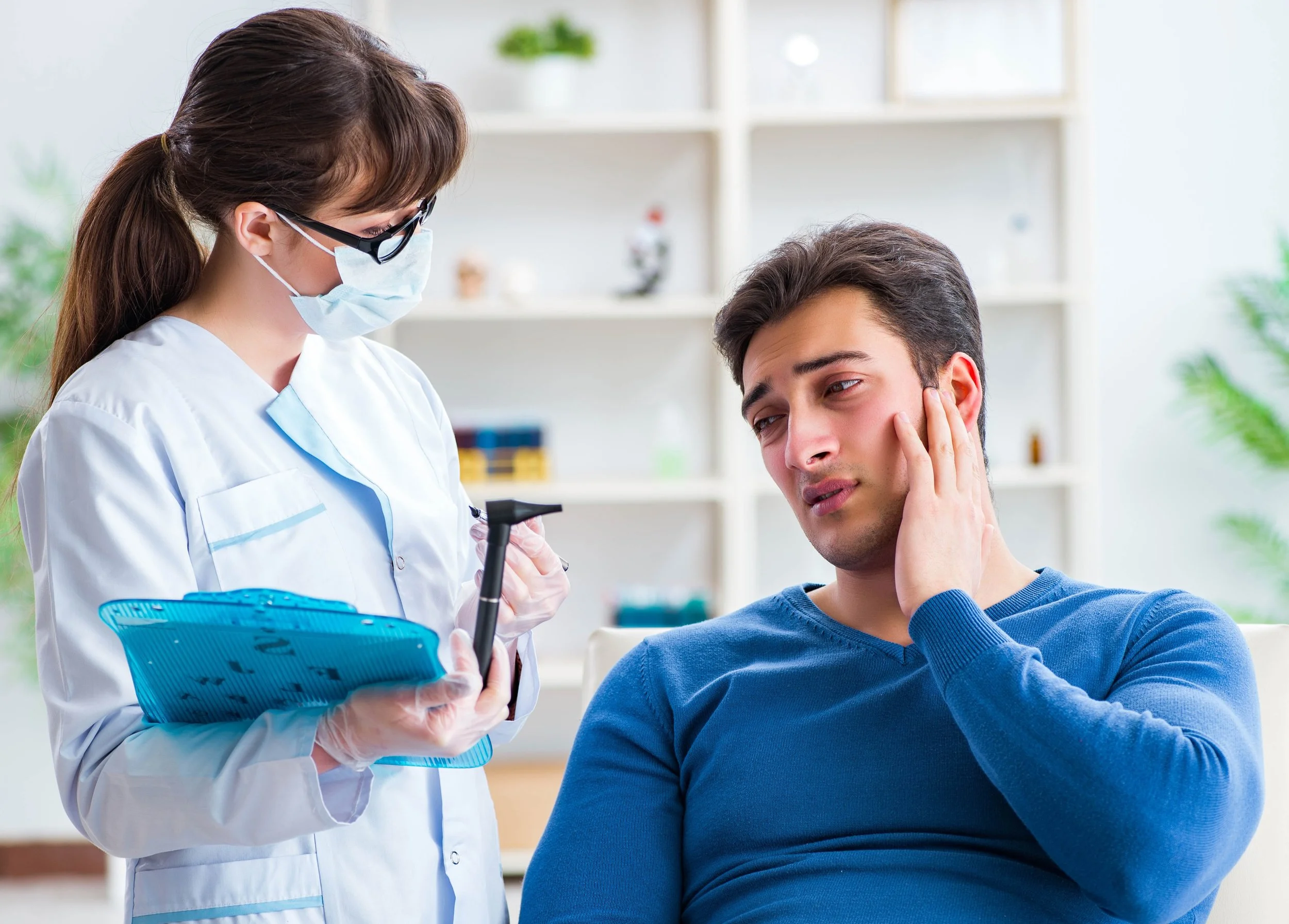
If you’re experiencing ear discomfort, this page will help you understand possible causes and when to seek help.
At Earsonic, we offer a thorough consultation including your case history, otoscopy, and tympanometry to check for fluid, infection, or other issues.
If symptoms persist or are affecting your daily life, book an appointment today. We're here to help.

✺
Precise examination of the underlying cause of ear pain and pressure, whether it's due to an ear infection, seasonal allergies, or other conditions.
✺
Identifying any concurrent hearing issues that may need addressing along with the ear pain (ear drum perforation, water retention behind the ear drums etc.).
✺
Tailored treatment plans based on the specific cause of the ear pressure or pain, ensuring effective and targeted relief.
✺
Audiologist’s guidance and recommendation on preventive measures to avoid future ear pain and related problems.
✺
Early detection of serious conditions enabling timely intervention and referral requests to Ear Nose and Throat Doctor.
✺
Middle ear pressure examination with a tympanometer in order to evaluate the function of the Eustachian Tube.
FAQs
-
Some of the main reasons why your ears might be protesting:
Ear Infections:
Outer Ear Infection (Otitis Externa): Also known as “swimmer’s ear,” this occurs when water gets trapped in the ear canal and leads to bacterial or fungal growth. Symptoms include redness, swelling, itching, hearing loss and discharge.
Middle Ear Infection (Otitis Media): It happens when fluid builds up in the middle ear and becomes infected. Treatment normally include antibiotics (prescribed by a physician)
Air Pressure Changes:
Ever felt that “pop” in your ears during takeoff or landing on an airplane? That’s your eustachian tube equalizing pressure. However, sudden changes (like in an elevator) can disrupt this balance, causing ear pain. To prevent this, chew gum, swallow, or yawn during flights.
Earwax Buildup:
Sometimes, our ears produce more wax than they can naturally expel. When this wax hardens, it can block the ear canal, leading to discomfort and pain. Avoid using cotton swabs, as they can push the wax deeper.
Trauma or Injury:
Damage to the eardrum due to trauma (such as a blow to the ear) can cause pain. Be cautious with objects near your ears and avoid inserting anything into the ear canal.
Sinus Infections:
Sinus congestion and infections can lead to referred pain in the ears. When your sinuses are inflamed, the pressure can affect the nearby ear structures.
TMJ:
Problems with the temporomandibular joint (TMJ) can often cause ear pain mimicking an ear infection, tinnitus (ringing in the ears), dizziness and headache.
-
Yes! Here are some preventive measures:
Keep your ears dry during and after swimming to avoid swimmer’s ear.
Chew gum, swallow, or yawn during takeoff and landing on flights to equalize pressure.
Avoid air travel and diving when you have a cold or sinus infection.

